Deception
Why Is My Child Lying?
Research suggests that all kids lie, but parents and schools play a role.
Posted June 14, 2019 Reviewed by Devon Frye
Children lie.
When, how, and why do they develop this unpleasant habit? There is a considerable amount of evidence suggesting that most children first begin to lie around the ages of two or three. Anyone who has been around young little liars know that they aren’t particularly skillful deceivers at that age.
Their lies are far-fetched, inconsistent with the evidence, or change dramatically over time. While they seem to understand the concept of planting a false belief in another’s mind, they just haven’t yet figured out the best ways to execute the dishonesty.
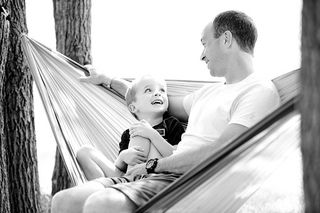
One can view lying as a complex cognitive and social task. In order to tell an effective lie, a child needs to understand that their goal is different from the goal of someone else.
They also need to understand that other people can have different beliefs than their own (this is referred to as theory of mind). They need to be able to create and present a narrative that causes others to form a false belief. They need to selectively present the narrative in such a way that it is consistent with tangible evidence that is available and is also plausible.
And finally, they need to conceal the truthful information that they have. Each of these capabilities is not something that children are born with. Rather, they are mental faculties that develop over time. As with all developmental milestones, not all children begin lying at the same age, and they are not all equally adept liars.
Interestingly, until children develop a theory of mind or the understanding that other people have separate minds, wants, and beliefs, they do not lie. It seems that once they come to understand that other people can hold different beliefs, they begin to capitalize on that understanding, attempting to create false beliefs in the minds of others.
In one fascinating study by an international group of research psychologists in China, Canada, and the U.S., the researchers closely examined this link between theory of mind and lying in children. The researchers gathered a large group of three-year-olds who had not yet shown any propensity to lie. The researchers confirmed that the children had not yet learned to lie by placing them in situations where a simple lie would allow them to gain a reward. None of the children lied.
In the next phase of the study, the researchers taught some of the children about theory of mind. Through a series of training exercises, they taught the kids that people can hold beliefs different from their own and that sometimes these beliefs are incorrect.
Next, they brought all of the children back and again placed them in situations where lying would allow the children to gain a reward (a sticker that they indicated was their favorite). It turned out that children who had received the theory of mind training lied the majority of the time, whereas the children who did not receive the training remained largely honest. Thus, it seems that an understanding of theory of mind seems to launch us into our lifelong patterns of deception.
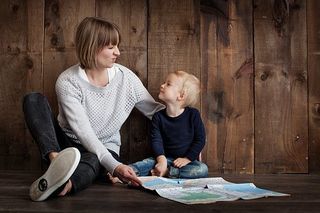
It may not come as a surprise that the environment in which a child is reared influences their propensity to lie. In a study carried out by Jennifer Lavoie and others, researchers examined how different types of social indoctrination in the home influences children’s lying behavior.
What the researchers found is that all parents tend to instruct their children not to lie, yet all children seem to lie. More interestingly, they found that some parents' attitudes about lying were more permissive than others.
These permissive parents told their children that while lying is wrong, sometimes it is necessary. The children of the more permissive parents turned out to lie significantly more often. Thus, parental attitudes about lying seem to have a large influence on how dishonest children are.
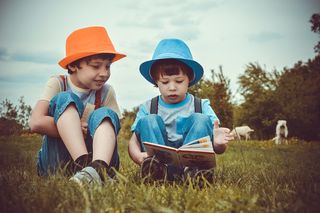
Instead of simply instructing children that lying is wrong, Victoria Talwar and her colleagues found that the form of instruction was particularly important. In their study, they examined the effects that fables and stories about honesty had on children.
Their findings suggest that using such stories was an effective tool for teaching children about lying and promoting honesty. However, they found that stories with more punitive anti-lying themes, such as “The Boy Who Cried Wolf,” did not reduce lying, while stories that focused on the positive aspect of honesty, such "George Washington and the Cherry Tree," did promote greater levels of honesty in children.
This means that if we want our children to be honest, we need to promote the benefits of honesty rather than focusing on the costs of dishonesty.
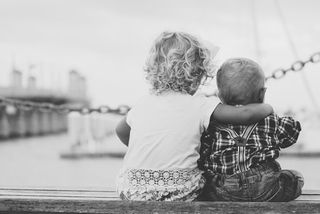
One additional feature of the home life that influences children’s deception is the presence of older siblings in the home.
Kids who have older siblings learn to tell lies at an earlier age than those who lack an older brother or sister. Children are keen observational learners, picking up skill by simply watching those around them.
It may be that an older sibling who has already mastered the art of deception serves as a mentor or guide in deception to their younger siblings.
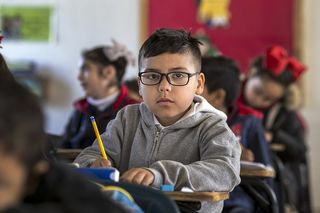
Child development is also influenced by the educational environment. When researchers studied the honesty of children who attended schools that were very punitive, compared to schools that were more permissive with their students, they found that children from the more punitive schools were much more effective liars.
The researchers argued that being in a punitive environment effectively facilitates learning the skills needed to avoid punishment, such as lying.
As children develop, they internalize a belief system about the morality of dishonesty. Developmental psychologists have found that very young children tend to hold very rigid moral attitudes about lying. They see lying as being categorically wrong in all cases.
However, as children reach the age of 10, their views begin to change. Moving from 10 to 18, children begin to develop a more nuanced attitude about lying, in which the rightness or wrongness of a lie depends on the outcomes that it produces. They begin to view lies told to protect the feelings of others as morally acceptable. Essentially, their moral attitudes about lying come to resemble those of adults.
Taken together, all of the evidence seems to paint a clearer picture of when, why, and how children lie. It looks as if children start off quite honest, but that honesty is tied to a self-centered belief that their mental experiences are the only ones that exist. Once they come to see that others are capable of having different beliefs, they begin to use lies to trick people.
It also seems clear that while all children learn to lie, the socialization they are exposed to at home and at school influences the degree to which they practice lying. All children lie, and trying to stamp out lying altogether may be a fool’s errand. Parents may be well-advised to accept that their kids lie, and focus their efforts on shaping the frequency and types of lies that their children tell.
References
Ding, X. P., Wellman, H. M., Wang,Y., Fu, G., & Lee, K. (2015). Theory-of-mind training causes honest young children to lie. Psychological Science, 26(11), 1812–1821.
Lavoie, J., Leduc, K., Crossman, A. M., & Talwar, V. (2016). Do as I say and not as I think: Parent socialisation of lie-telling behaviour. Children & Society, 30(4), 253-264.
Lavoie, J., Nagar, P. M., & Talwar, V. (2016). From Kantian to Machiavellian deceivers: Development of children’s reasoning and self-reported use of secrets and lies. Childhood 24(2), 1-15.
Nagar, P. M., Williams, S., & Talwar, V. (2019). The influence of an older sibling on preschoolers’ lie‐telling behavior. Social Development. https://doi.org/10.1111/sode.12367
Talwar, V., & Lee, K. (2011). A punitive environment fosters children’s dishonesty: A natural experiment. Child Development, 82(6), 1751–1758.
Talwar, V., Yachison, S., & Leduc, K. (2016). Promoting honesty: The influence of stories on children's lie‐telling behaviours and moral understanding. Infant and Child Development, 25(6), 484-501.




